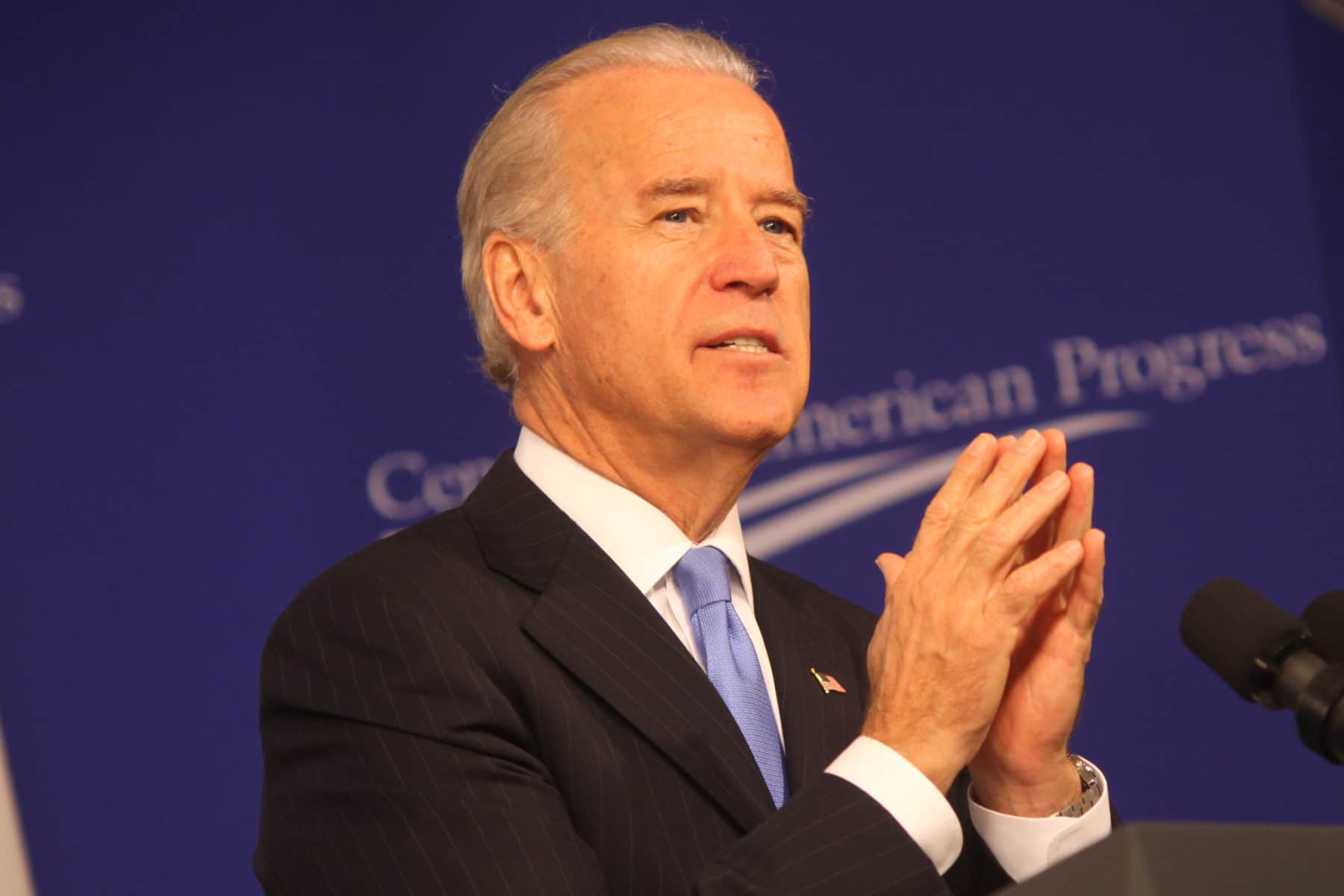On April 25, Joe Biden announced his long-anticipated bid for the 2020 Democratic nomination. He has polled as favorite and, like many candidates, is positioning himself as the antithesis to President Donald Trump, vowing in his launch announcement to fight “everything Trump embraces.”
Yet from rhetoric to straightforward policy, Biden’s approach to drugs has plenty in common with that of his supposed nemesis. Just as Trump pushes the draconian fantasy of a “drug-free America,” Biden’s long record suggests that he, too, dreams of the total elimination of drug use, despite the human rights consequences.
In a 1989 response to then-President George H. W. Bush, Biden asserted, “If there are no drug users, there will be no appetite for drugs, and there will be no market for them.”
If Obama’s vice president is going to live up to his commitment to stand apart from Trump, he has a major transformation to undergo, given his consistent espousal of the War on Drugs, from the crack era through the growth of the harm reduction movement.
Just like Trump, Biden has advocated for harsher punishments for people who use and sell drugs. (As we know, they are often the same people, given that many sell to support their own use.) Biden backed the Anti-Drug Abuse Act of 1986, one of the most glaring examples of different drug-war approaches to white and black people. It made the quantity required for a mandatory minimum sentence for crack—a drug perceived to be used by black Americans—100 times less than that needed for powder, which was commonly associated with white people. This disparity further fueled the disproportionate mass incarceration of black Americans.
In his 1989 address, Biden lamented that the existing state of drug policy “doesn’t include enough police officers to catch the violent thugs, not enough prosecutors to convict them, not enough judges to sentence them, and not enough prison cells to put them away for a long time.”
In contrast to Trump’s limited embrace of funding for recovery programs, Biden issued a call in his 1989 address to “hold every drug user accountable.” In the following years, he supported the sweeping intensification of incarceration and racist policing. Prison sentences for drug possession and penalties for transporting drugs were boosted by Biden’s co-sponsored Anti-Drug Abuse Act of 1988 and the 1994 Violent Crime Control and Law Enforcement Act. Similarly, federal drug trafficking penalties were increased by a 1984 law, the Comprehensive Control Act, that was spearheaded by Biden and the notoriously racist Republican Senator Strom Thurmond.
The Comprehensive Control Act also expanded the use of civil asset forfeiture, which has been known to undermine black wealth and fund corrupt police agencies. Civil asset forfeiture wasn’t just a detail in the policy for Biden; it was something he led.
Way back in 1979, Biden requested that the Government Accounting Office investigate the Department of Justice’s asset forfeiture program. The result? “We recommend that the Congress strengthen the criminal forfeiture statutes and that the Attorney General improve forfeiture program management,” wrote the Comptroller General in the response to the Delaware senator’s request—a suggestion that would help kick off Reagan’s escalation of the War on Drugs.
Fast forward to the early 2000s, and harm reduction faced a major setback due to policy co-sponsored by Biden. The Illicit Drug Anti-Proliferation Act—more commonly known as the RAVE Act—cracked down on businesses that knowingly provided space for people who used drugs, and in particular ecstasy and MDMA.
Harm reductionists have seen first-hand how this discourages the availability of services, like drug checking, that keep people safe when using drugs. In the current moment of the opioid-involved overdose crisis, the legacy of the RAVE Act has provided legislative fodder for opposition to safer consumption spaces.
“There’s a tendency now to talk about Joe Biden as the sort of affable if inappropriate uncle, as loudmouth and silly,” Naomi Murakawa, author of The First Civil Right: How Liberals Built Prison America, told the Marshall Project in 2015. “But he’s actually done really deeply disturbing, dangerous reforms that have made the criminal justice system more lethal and just bigger.”
Similar to candidates like Kamala Harris backpeddling on their unseemly track records that advanced mass incarceration and prohibition, Biden has also reconsidered some of his policies that have proven disastrous.
“I haven’t always been right,” Biden admitted earlier this year while speaking to criminal justice issues. “I know we haven’t always gotten things right, but I’ve always tried.”
In the past decade, Biden has sought to right some of his wrongs, most notably with a law titled Second Chance Act, which provides transitional services for people who were formerly incarcerated, and with the Fair Sentencing Act of 2010, which dropped—though only to an extent—the sentencing disparity between crack and powder cocaine.
“Our intentions were good, but much of our information was bad,” Biden said in 2008, regarding his work to fuel the Crack-Era War on Drugs.
Biden has also apologized for his punitive drug policies on a number of different occasions, describing them as a “big mistake.”
But is he listening hard enough? His recent applause for an anti-medical marijuana speech at an opioid forum would suggest otherwise.
Photo via Flickr/Creative Commons




